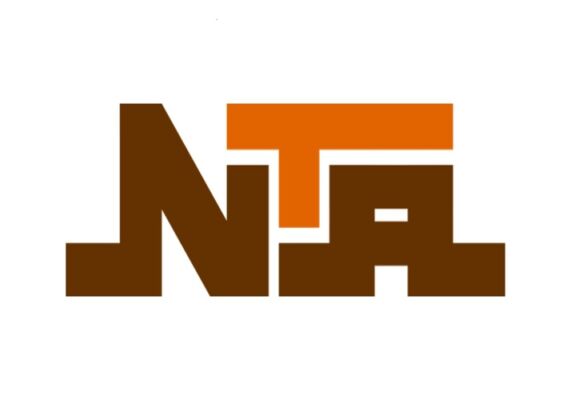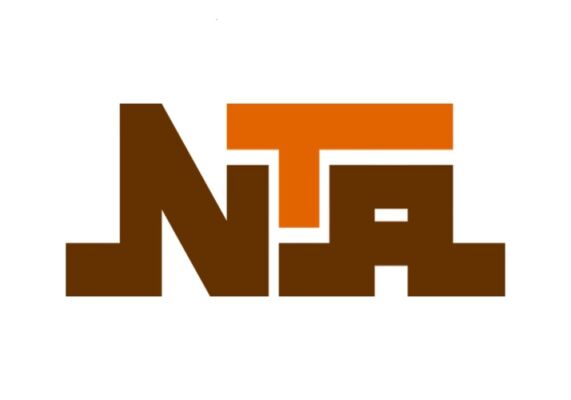- Government Organisation
- Abuja, Federal Capital Territory, Nigeria

Nigerian Television Authority (NTA)
About the Nigerian Television Authority (NTA)
The Nigerian Television Authority (NTA), established in 1977 by the federal government of Nigeria, serves as the country’s national public broadcaster. As the oldest and largest television network in Nigeria, the NTA has been instrumental in shaping the nation’s media landscape. Its mandate is rooted in providing diverse and inclusive programming to educate, entertain, and inform the Nigerian populace, as well as fostering cultural unity and national integration.
History and Establishment
Initially known as the Federal Radio Corporation of Nigeria Television (FRCN-TV), the NTA was rebranded to its current name as part of the government’s broader strategy to establish a unified public broadcasting system. This initiative aimed to support Nigeria’s post-independence development by promoting education, disseminating government policies, and fostering unity in the culturally diverse nation. Over the decades, the NTA has expanded significantly, operating a robust network of regional stations that cover every major city and town in Nigeria.
Historical Background of the Nigerian Television Authority (NTA)
The Nigerian Television Authority (NTA) was officially established in 1977 as part of the federal government’s initiative to create a unified and robust public television service. Its formation was rooted in the government’s recognition of the need for a central platform to foster national unity, provide educational content, and disseminate reliable information to a diverse and growing population. This vision was particularly significant in the aftermath of Nigeria’s civil war, as the country sought tools for healing and integration.
The Era of Fragmented Regional Broadcasting
Before NTA’s creation, television broadcasting in Nigeria was highly fragmented, with regional stations operating under various state governments and authorities. These stations primarily served localized interests, often reflecting the ethnic, linguistic, and cultural diversity of their regions. While this decentralized approach catered to local needs, it lacked the capacity to function as a cohesive national medium. As a result, the government saw the potential for a unified system to address the broader needs of the entire nation.
Formation of NTA: A Centralized Vision
In the early 1970s, the Nigerian government initiated steps to unify the country’s television landscape under a single authority. This vision culminated in the establishment of the NTA, initially known as the Federal Radio Corporation of Nigeria Television (FRCN-TV). Its mandate was clear: to broadcast content that would inform, educate, and entertain while fostering a sense of national identity and unity.
By 1977, the NTA had absorbed all existing regional television stations, making it the sole television broadcaster in Nigeria. This consolidation was seen as a significant milestone in Nigeria’s media history. It provided the government with an effective platform for public service messaging, policy promotion, and educational outreach, particularly in rural areas that had limited access to formal education.
Early Operations and Nationwide Expansion
NTA’s initial operations began in major urban centers such as Lagos, Nigeria’s commercial hub. Over time, it expanded its reach by establishing regional stations across the country. These stations operated as part of the national network but retained the flexibility to air programs tailored to their local audiences. This dual strategy ensured a balance between national cohesion and regional representation, addressing Nigeria’s complex demographic landscape.
The NTA’s programming in its early years focused heavily on public service content. Government announcements, educational programming, and cultural showcases dominated its airtime. This focus on national issues made NTA a crucial tool for informing and uniting Nigerians during critical periods, such as elections, national celebrations, and health campaigns.
Technological Advancements and Growth
In the 1980s and 1990s, NTA embraced technological advancements to enhance its broadcasting capabilities. It was among the first networks in Africa to adopt color television broadcasting, a move that significantly improved the viewing experience for millions of Nigerians. Additionally, the advent of satellite technology allowed NTA to extend its broadcasts beyond Nigeria’s borders, reaching Nigerian expatriates and international audiences through its satellite channel, NTA International.
During this period, NTA also diversified its content offerings. While public service programming remained a priority, the network expanded into entertainment, sports, and international news, making it a household name in Nigeria. Popular programs like dramas, music shows, and talk shows became staples, further cementing NTA’s reputation as a versatile broadcaster.
Challenges and the Era of Competition
The liberalization of Nigeria’s broadcasting sector in the early 2000s marked a turning point for NTA. The emergence of private television networks introduced competition, challenging NTA’s dominance. Private broadcasters, often funded by commercial interests, offered more dynamic and diverse content, appealing to younger and urban audiences.
Despite these challenges, NTA remained a critical player in Nigeria’s media ecosystem. It adapted by transitioning to digital broadcasting, in line with global standards, and expanding its online presence to reach a tech-savvy audience. This transition allowed the NTA to retain its relevance while continuing to serve its core mandate of public service broadcasting.
Present-Day NTA: Balancing Legacy and Innovation
Today, the NTA operates an extensive network of regional and specialized channels, including NTA Network and NTA International. It broadcasts in multiple languages, reflecting Nigeria’s rich linguistic and cultural diversity. Its programming spans news, education, entertainment, and sports, maintaining its status as one of the most recognizable media brands in Nigeria.
Despite facing competition from private broadcasters and evolving viewer preferences, NTA remains a cornerstone of Nigeria’s media landscape. It continues to play a vital role in promoting national unity, educating the public, and preserving Nigeria’s cultural heritage, ensuring its legacy as a pioneer in African broadcasting.
Mandate of Nigerian Television Authority (NTA)
The mandate of the Nigerian Television Authority (NTA) is centered around its role as a public service broadcaster, tasked with promoting national unity, delivering essential information to the public, and providing diverse programming that serves the educational, cultural, and entertainment needs of Nigerians. The core objectives of NTA’s mandate include:
- Promoting National Unity: As a government-owned broadcaster, one of the primary mandates of NTA is to serve as a tool for national integration. It aims to unite Nigeria’s diverse ethnic and linguistic groups by offering content in various local languages and ensuring that programming reflects the country’s cultural diversity.
- Providing Information: NTA is responsible for informing the public about national developments, including political, economic, social, and cultural issues. It broadcasts government policies, news, and other important public service messages. This includes airing speeches from government officials, addressing national emergencies, and sharing critical information during times of crisis.
- Educating the Public: NTA has a strong mandate to provide educational programming that supports the development of the country. This includes content related to education, health, agriculture, technology, and other areas crucial for the advancement of Nigerian society. The network’s educational content is designed to raise awareness and improve the general well-being of citizens.
- Providing Cultural Content: NTA plays a key role in preserving and promoting Nigeria’s rich cultural heritage. The network produces and broadcasts programs that showcase the country’s diverse traditions, arts, music, and history. This helps foster pride in Nigerian culture and ensures that cultural values are passed down through generations.
- Delivering Entertainment: NTA’s mandate includes providing entertainment programming that caters to various tastes and interests. This includes dramas, movies, music shows, reality TV, and other forms of entertainment that contribute to the relaxation and enjoyment of Nigerians.
- Ensuring Public Access to Information: NTA is tasked with making sure that citizens have access to information that is essential for their well-being. By offering free-to-air programming, it ensures that a broad segment of the population can stay informed about public affairs, national events, and other matters of importance.
- Facilitating Government Communication: NTA serves as an official platform for the Nigerian government to communicate directly with its citizens. This includes broadcasting government programs, updates, policy announcements, and news conferences, as well as reporting on the achievements and activities of various government ministries, agencies, and officials.
- Providing a Platform for Innovation and Development: NTA is tasked with embracing technological advancements and using them to enhance its service delivery. This includes expanding the network’s reach through satellite and digital platforms, promoting innovative programming formats, and ensuring that the network remains relevant in an increasingly digital media environment.
- Serving the Diaspora: Through its international channels, such as NTA International, the network extends its reach to Nigerians living abroad, providing them with news, entertainment, and cultural programming that keeps them connected to their home country.
Services Offered by the Nigerian Television Authority (NTA)
The Nigerian Television Authority (NTA) provides an extensive range of services that address the diverse needs of Nigerians both locally and internationally. As the national public broadcaster, NTA fulfills its mandate by producing and delivering content across various domains, including news, education, culture, entertainment, and public service communication.
1. Television Broadcasting
NTA operates multiple channels to reach its broad audience:
- NTA Network: The flagship channel provides a mix of news, documentaries, cultural content, and entertainment. Programming is available in various Nigerian languages, such as English, Hausa, Yoruba, and Igbo, ensuring inclusivity for the country’s diverse audience.
- Regional and Local Channels: NTA manages regional and local stations that produce tailored content addressing the specific needs and interests of local communities. This strengthens ties between the government and citizens while celebrating regional identities and cultures.
- NTA International: Catering to the Nigerian diaspora, this channel keeps those abroad informed about national news, cultural programs, and entertainment.
2. Educational Programming
Education is central to NTA’s public service mission. The authority produces programs that focus on:
- Literacy and Numeracy: Content aimed at improving reading and mathematical skills.
- Public Awareness Campaigns: Shows that address societal issues like health, sanitation, family planning, and climate change.
- Specialized Topics: Programs on science, technology, entrepreneurship, and other fields that empower viewers with practical knowledge. By producing these educational programs, NTA acts as a vehicle for societal change and personal development.
3. Comprehensive News Coverage
NTA is a trusted source for news and current affairs, offering:
- National News: Coverage of political events, economic developments, and societal issues within Nigeria.
- International News: Updates on global events with a focus on how they affect Nigerians.
- In-Depth Analysis: Expert interviews, special reports, and investigative journalism provide deeper insights into key issues. NTA’s reputation for news delivery makes it a reliable platform for government updates and public discourse.
4. Entertainment
The network offers a variety of entertainment content, including:
- Drama and Movies: Showcasing Nigerian storytelling through TV series and films.
- Music and Talent Shows: Promoting local artists and celebrating Nigeria’s vibrant music scene.
- Reality TV: Capturing the attention of younger audiences with relatable and engaging content. Through these shows, NTA promotes Nigerian culture and provides a platform for emerging creative talent.
5. Digital and Satellite Broadcasting
With advancements in technology, NTA has expanded its reach by embracing digital broadcasting and online platforms:
- Satellite Channels: Available through providers like Startimes, enabling wider access to NTA’s programs.
- Online Streaming: The NTA website and mobile app allow viewers to stream content live, catering to tech-savvy audiences and those without access to traditional TV. This digital transition ensures that NTA remains relevant in the modern media landscape.
6. Government and Public Service Communication
NTA serves as a key tool for government communication by:
- Broadcasting speeches and announcements from Nigerian leaders.
- Disseminating information about government policies, social programs, and national events.
- Acting as a crisis communication platform during emergencies, such as pandemics or natural disasters.
7. Cultural and Sports Promotion
NTA actively promotes Nigerian culture and sports:
- Cultural Shows: Highlighting traditional music, dance, and customs from various ethnic groups.
- Sports Broadcasting: Coverage of major sporting events, including local football leagues, the Olympics, and international competitions where Nigerian athletes compete.
Through these diverse services, NTA continues to play a pivotal role in informing, educating, entertaining, and uniting Nigerians across the globe, making it a cornerstone of the country’s media landscape.
Organization Structure of the Nigerian Television Authority (NTA)
The Nigerian Television Authority (NTA) has a well-defined organizational structure tailored to efficiently manage its broad range of operations as Nigeria’s largest public television broadcaster. Designed to align with its mandate of delivering quality content, fostering national unity, and adapting to technological and industry trends, NTA’s structure ensures coordination across departments and regional offices.
Leadership and Governance
- Director-General (DG): At the helm of NTA’s leadership is the Director-General, who acts as the chief executive officer. The DG oversees all operations, sets the strategic vision, and ensures alignment with national goals. Reporting directly to the Board of Directors, the DG plays a pivotal role in steering the organization in response to media trends and public expectations.
- Board of Directors: This body provides oversight and ensures compliance with public service objectives. Members of the board represent diverse sectors, including government, media, and civil society, contributing to governance, policy formulation, and institutional accountability.
Departments and Divisions
- Programs and Production Department
- Responsible for creating, curating, and scheduling content across various genres such as news, entertainment, education, and documentaries.
- Subdivisions specialize in different content areas, ensuring diversity in programming and adherence to the public service mandate.
- News and Current Affairs Division
- Focuses on timely and accurate news delivery, public affairs programs, and in-depth documentaries.
- Teams of reporters, editors, and researchers gather and verify news to ensure credibility and professionalism.
- Technical and Engineering Department
- Manages broadcasting infrastructure, satellite transmissions, and equipment maintenance.
- Oversees the transition to digital broadcasting and continuous technological upgrades.
- Ensures nationwide signal availability and supports NTA’s global reach via NTA International.
- Human Resources Department
- Handles recruitment, staff training, and employee welfare to maintain a skilled and motivated workforce.
- Ensures staff adaptability to modern broadcasting techniques and industry trends.
- Finance and Administration Department
- Manages budgeting, financial reporting, and procurement, ensuring efficient resource allocation and regulatory compliance.
- Administrative units oversee day-to-day operations and coordinate support services.
- Marketing and Corporate Communications Department
- Responsible for advertising, sponsorships, and branding efforts to generate revenue.
- Manages public relations and promotes NTA’s image locally and globally.
Regional and Zonal Stations
NTA’s decentralized structure includes numerous regional and zonal stations spread across Nigeria. These stations:
- Produce localized content catering to regional audiences, reflecting local cultures and languages.
- Operate under the supervision of Regional Managers, who ensure alignment with NTA’s national policies and standards.
This structure strengthens the broadcaster’s reach, ensuring national cohesion while respecting regional diversity.
Operational Units
- Production Units: Teams responsible for graphics, set design, editing, and broadcast operations collaborate to ensure seamless program delivery.
- Technical Teams: Operate cameras, sound systems, and broadcasting equipment to maintain high production standards.
Digital and International Expansion
- With the advent of digital broadcasting, NTA has embraced new platforms such as online streaming and mobile applications, allowing audiences to access content anywhere, anytime.
- NTA International serves the Nigerian diaspora, offering a mix of news, entertainment, and cultural content to connect global audiences with Nigerian developments.
Summary
The Nigerian Television Authority has developed a robust organizational structure to manage its operations effectively. By balancing centralized leadership with decentralized regional stations and investing in cutting-edge technology, NTA continues to fulfill its mission of informing, educating, and entertaining millions of Nigerians. Its adaptability and commitment to cultural diversity and public service ensure its position as a cornerstone of Nigeria’s media landscape.
Business Amenities
- Car Parking
-
 Government Organisation
Government Organisation
Contact Information
Opening Hours
Contact Business
Contact Business
Additional Information
Additional info







